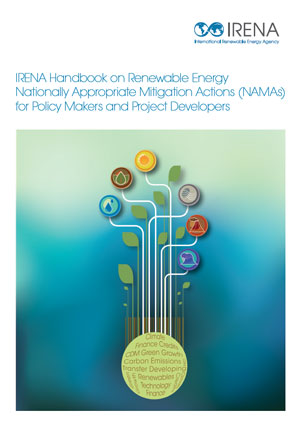Publications
IRENA handbook on renewable energy nationally appropriate mitigation actions (NAMAs) for policy makers and project developers
1st January 2012
Topic(s): Domestic policy, Incentive mechanisms, Project financing, Renewables
This Handbook focuses on the role that Nationally Appropriate Mitigation Actions (NAMAs) can play in promoting renewable energy in developing countries. The concept of NAMAs was developed in the negotiations carried out under the United Nations Framework Convention on Climate Change (UNFCCC) to denote planned, voluntary greenhouse gas (GHG) mitigation actions in countries that do not have a legally binding emissions commitment. Notifying a NAMA thus practically means putting a UNFCCC-backed label on national development activities with mitigation effects. Renewable energy, being carbon dioxide-free, is a perfect candidate for a NAMA as it combines development benefits through the provision of energy with GHG reduction.
Disclaimer
The content within the Global CCS Institute Publications, Reports and Research Library is provided for information purposes only. We make every effort and take reasonable care to keep the content of this section up-to-date and error-free. However, we make no claim as to its accuracy, currency or reliability.
Content and material featured within this section of our website includes reports and research published by third parties. The content and material may include opinions and recommendations of third parties that do not reflect those held by the Global CCS Institute.
